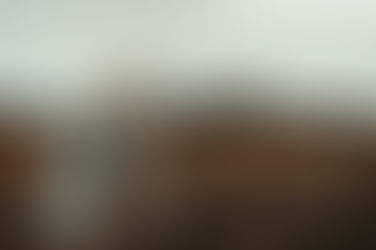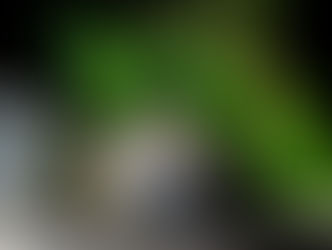Tea Time With... The Radio
- The Oolong Drunk
- Sep 25, 2019
- 7 min read
Hello hello!
After interviewing a karaoke DJ, I realized that I was going in the right direction as far s getting to have tea-time with Lana Del Rey. I mean, after all, she does sing the music that is played at karaoke. After that interview, I had an epiphany… Lana Del Rey got more popular by being played on the radio. So what I need to do is find a way to a radio station. And that’s exactly what I did. A few Saturday’s ago, I made my way to The Ozark’s rock station Q102 FM where I met up with DJ Caleb — the area’s weekend DJ.

As I pulled up to the station, I was a bit taken back by how industrial the area appeared to be. After listening to the radio all our lives, you’d imagine something in a high-rise in a downtown location. A few radio-station promotional vehicles awaited their next event in the parking lot, with a large radio-tower shadowing the complex. I was greeted by Caleb at the door where a front-desk reception area which sat under four portraits that were of Kurt Cobain, Kelly Clarkson, Michael Jackson, and Ozzy Osborne —four artists that play importance to how we view music today.
I followed Caleb down the hall as he gave a tour of the complex. On every wall-way, which had posted its own unique name such as like Garth Brooks Way or Led Zeppelin HWY. Underneath the musical-themed street named halls, therein hung row upon row of autographed guitars from some of Music’s greats such as Dolly Parton, Willie Nelson, and even Slash. One wall was lined with vinyl records, while another was posted with autographed photographs from famous artists like Ariana Grande, Katy Perry, and Taylor Swift.
Upon seeing Taylor Swift’s autograph in several areas, I knew I was in the right place, given that Lana Del Rey and Taylor Swift shared a producer for their albums (Jack Antonoff). Even so, seeing Ariana Grande’s autograph instilled me with hope because of the artist’s professed love with admiration and friendship for Lana.
The tour ended at one of the few studios where I set-up tea time. In the studio, several arms extended out microphones which led to a switchboard based under two computer screens. On the screens, there was a line-up of music which included breaks for commercial in-between. I turned on the kettle and began the first infusion of an aged white tea that was once listed by White2Tea.

As Caleb took the first sip, he talked about how he got into radio himself over eight years ago. “I had a lot of friends in the radio and had worked with some of them when I was a karaoke DJ. They had a position open up and one of them came up and told me about it.”
Caleb continued to explain how he applied for and ended up getting hired for the position. He started off on Sunday nights after one day of training, then gradually worked his way up to playing all weekend.
“We were playing modern rock at the time. During my show, it could have been anything. We did a decent mix of old and new rock, but at the time the oldest was to the ’90s.”
Caleb commented on the uniqueness of the tea opening up and mentioned how he’d never had tea made this way, muchness seeing and knowing about a tea cake. As we continued with tea, I asked him about how he views trends in music today. More so since he’s in the front-lines of main-stream media.
“Attention spans have gotten shorter for a lot of people, so songs have gotten shorter. Bands are doing much less musically I think.” Before making his statement definitive he threw back in there,
“…there’s still a lot of artists out there that do a lot of good musical stuff. As far as like what gets on the radio, I feel like there’s a lot less solos out there like guitar solos, etc. Stuff like that.”
With a change in times, especially with times where freedom of speech seems limited with the rise of extremism of political correctness, I poked the question about censorship on the radio, especially when compared to television.
“It’s harder to insinuate things on the radio because there’s no visual — it’s all audio. Whereas on TV you can insinuate some things through actions even though you don't come out and say it. So I think there’s easier ways to get around it on TV than radio.”
As we kept drinking tea, Caleb pointed out how the aged white tea reminded him of something rum-barrel flavored and noted that it was much more complex than the stuff he’d normally drink.
While drinking tea, I noticed he had the radio-station’s social media page pulled up, which led me to ask about the rise of music streaming’s competitiveness with the need for radio.
“I think the difference is that radio, for the most part, is free to the listener.”
After speaking live on air about an upcoming festival during a break in the music, Caleb continued.
“…it definitely has changed how artists market themselves and feel like they can write or can’t wright. ‘Cause in the past, it’s always been like ‘how do I get this song on the radio?’ Because that’s the only way people are going to hear it. But now it’s anyone who can record a song and put it on Spotify.”

Being unfazed by the streaming-stardom of artists like Billie Eilish, and the rise of major streaming services coming up in popularity, he didn’t seem worried nor fazed.
“It is a symbiotic relationship [between artists and radio].”
While bringing up advertisers in the context of how artists get played, he continued,
“…So we don't need the artists or the music itself obviously, but there’s enough music out there to where, on a Saturday afternoon, we have nothing but 90’s for ten hours.”
Caleb kept forward with how despite the instant gratification of streaming services, radio isn’t far behind the times than originally thought.
“A lot of radio stations have an app. We have an app that you can download and stream us live if you’re out of the area. So if you’re in your car and you know you’re traveling…you can bring up our app and stream us live.”
With another infusion underway, I took note of how small the complex was. It was obvious that although this was a small building, radio also branches out into the community. That’s where Caleb gets to meet other notable musicians himself.
“Probably the most famous person I got to talk to was Scott Stapp from Creed, and that was just a couple of weeks ago. Skillet is another big one… The Deaftones were pretty cool. I didn’t get to interview them but I did meet them. Like I said, Scott Stapp was probably the biggest artist I’ve gotten to meet.”
With ending on that note, he made it know that Scott Stapp was indeed, as cool in persona as he seems in his music.
Speaking of extending into the community, radio stations like Q102 FM branch out into the local community through events and giveaways. With radio being synonymous with giving away prizes, I had to ask how a small operation like this could afford big prizes when branching out. “Record companies pay for giveaways.”

With keeping tabs on their audience through multiple platforms, such as connecting through social media, Caleb was very self-aware on what his audience enjoyed. With his audience’s enjoyment, he seemed to be more in-tune with his audience’s needs. However, while touring the complex, a detail that I noticed was that the sound-booths were small and quiet. And without directly seeing the audience as you would at a live concert, I explored the question about how he knew people were listening. He explained that it’s a calculation of surveys, social media feedback, and the revenue of what advertisers are making from placing ads on the air. After looking around, I was quickly reminded that the cubicles that filled the building we’re indicative of this being not just radio, but rather a place of business.
While finishing up tea, the next DJ came in to take over for Caleb. We finished the last infusion of aged white tea, the incoming DJ began talking on-air about the tea session that Caleb and I had underway. And without missing a beat, the microphone was pushed in front of me as I was being asked questions about the session itself. After talking about drinking tea with Caleb, and mentioning the interview, a small exchange that can’t seem to remember was had. Being put on the spot, along with being ‘live’, was enough to be a mix of excitement and intimidation. The DJ ended our on-air convo, played Sublime, and bid us good-bye as we left the sound booth.
As I walked out of the studio, I reflected that I got to talk about tea with the greater mid-west. And possibly a wider range. But I also took Sublime playing after myself being on-air as a sign from up above that I’m making my way in the right direction into having tea time with Lana Del Rey. Because earlier, the artist released a cover of Sublime’s Doin’ Time. Was it a coincidence, or just me being blissfully hopeful that I was on the right path and it was meant to be?
When I got in the car, I drove away with the reassurance that the radio was here to stay because they flexed with the change in times. On top of seeing this side of the media, I felt the mixed emotions of promise and hopelessness. Just as Caleb sits in his booth filled with hope —not knowing if he’s directly reaching the audience he’s aiming for or not, I drive away wondering if I’m ever going to reach Lana…
— Blissfully Tea Drunk



















Comments